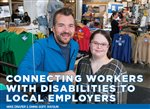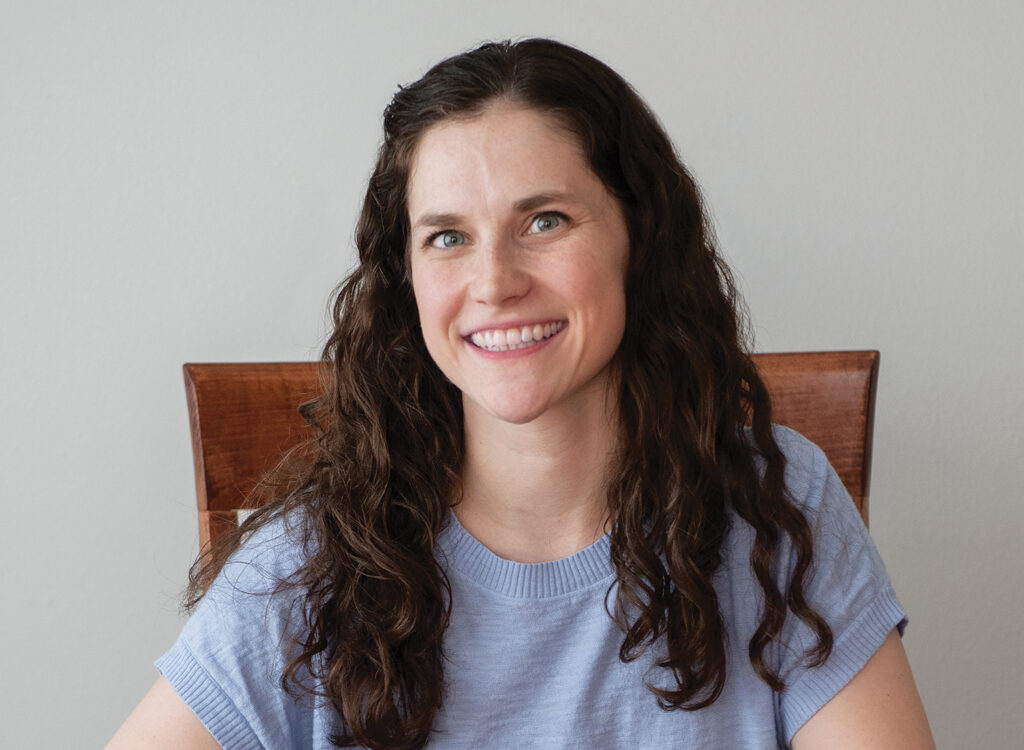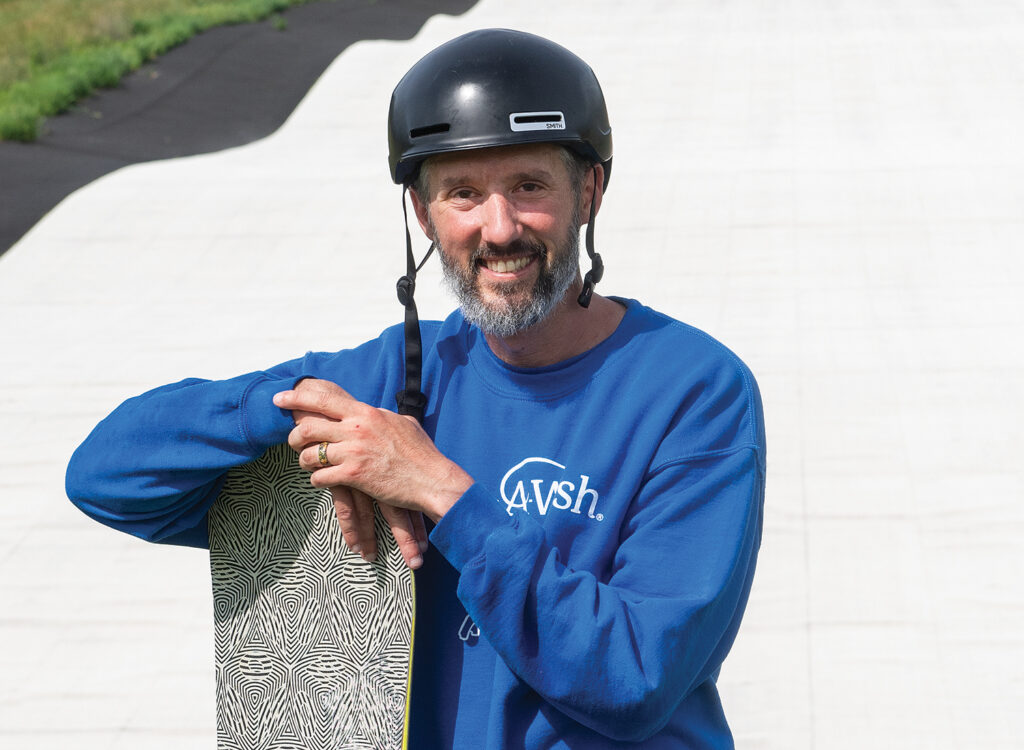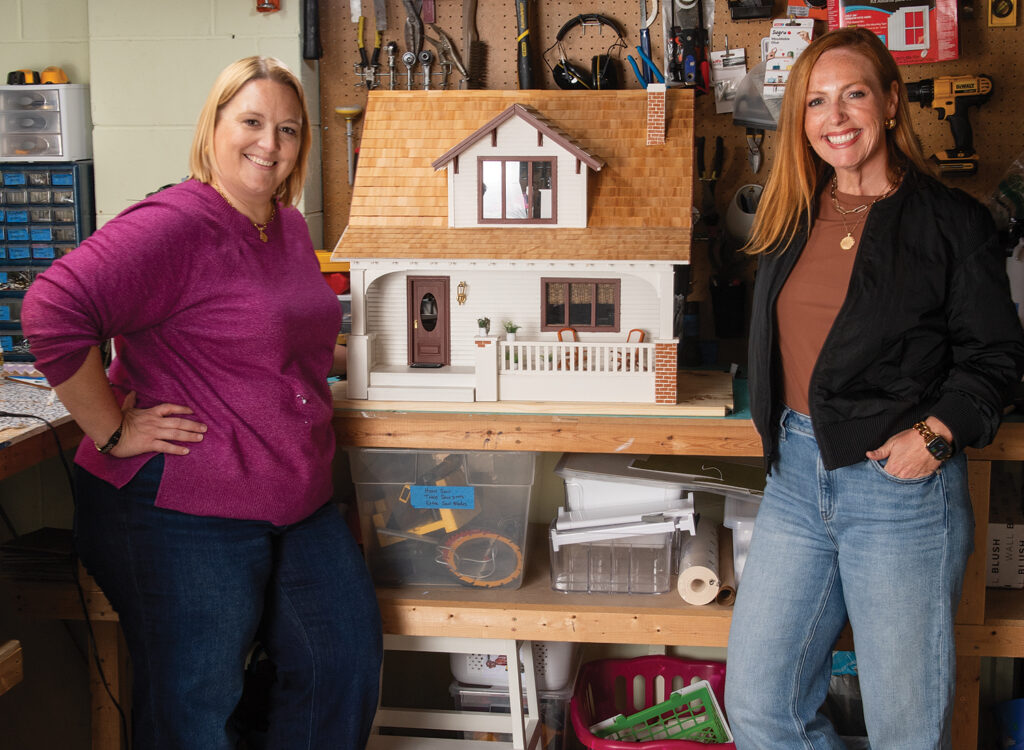Connecting workers with disabilities to local employers
An underused labor market could help address Iowa’s workforce shortage

JOE GARDYASZ Oct 23, 2019 | 7:49 pm
8 min read time
1,993 wordsBusiness Record Insider, HR and Leadership
For about the past year, Emma Goff has worked at Raygun, performing tasks such as stuffing mailers, restocking inventory and even waxing the T-shirt racks — a retailer trick that keeps the metal hangers quiet as customers flip through the merchandise.
Going to work — her first job — is a milestone for Goff, who has an intellectual disability and lives in a group home with support from Link Associates. With the support of a Link employee who’s coaching her, the East High School graduate’s goal is to eventually support herself financially and live on her own.
From small employers such as Raygun to some of the state’s largest like UnityPoint Health, many Central Iowa organizations recognize the value of hiring people with disabilities. However, advocates say there is much more to be done to bring more Iowans with disabilities of all types into the workforce.
Collectively, individuals with disabilities represent the largest marginalized population in the United States, said Reyma McCoy McDeid, executive director of the Central Iowa Center for Independent Living (CICIL), which is one of six independent living centers in the state serving people with disabilities.
McDeid estimates that within the six Central Iowa counties that CICIL serves, more than 100,000 people have some type of disability that meets the criteria of the Americans with Disabilities Act. “And I think that’s a conservative estimate,” she said.
According to data from the Office of Persons with Disabilities, just over 349,000 Iowans in 2017 reported having a disability — representing 11.3% of the state’s civilian, noninstitutionalized population. The number of Iowans between 18 and 64 with a disability who were employed in 2017 was 77,746, according to the agency.
McDeid is on the autism spectrum, and each one of CICIL’s board members and staff has some type of disability, she said.
“Normally you think of someone in a wheelchair or in a facility, but disability is more dynamic than that,” she said. “It’s really any experience that severely impacts a person’s ability to live in day-to-day life.”
A recurring theme that both employers and supporting agencies share through their experiences in working with people with disabilities is that it often requires taking a different approach to the hiring process.
In that vein, on Tuesday, Oct. 29, CICIL is partnering with FuseDSM (the Downtown Des Moines Chamber) to host an event aimed at educating businesses about supported employment opportunities in Greater Des Moines.
‘Good economic sense’
Mike Draper has provided employment opportunities for people with disabilities through both Link Associates and CICIL. Goff is one of four people with disabilities that Raygun has on the payroll currently, three of whom receive support services while at work from those agencies.
“I’ve found that often what is morally right to do often makes good economic sense in lots of different ways,” Draper said. “I don’t look at it like this is a community service, and we don’t do any free internships. Everybody gets paid here and on the same pay scale.”
Draper said that a willingness to work, showing up and having a good attitude go farther with him than accomplishments that can be listed on a resume. As with any employee, sometimes people with disabilities work out fine, while other times they don’t.
“Everybody who works here, regardless of ability level, is doing the same types of jobs, so they’re working like anybody else and their output is similar to other people,” he said. “We just need tasks completed by people, because we can’t afford robots here.”
Helping workers such as Goff has provided a new, fulfilling career path for Michelle Cattoor, who left a high-stress advertising job two years ago to work for Link Associates. “I love it,” Cattoor said. “I know going to work that I’m helping someone — and I get to watch people grow.”
Another supported employment organization in Des Moines also provides meaningful work experience for people with disabilities. Optimae Life Services launched a microbusiness venture in 2009 with Plain Talk Bookstore — a concept that over the past 10 years has branched out to eight microbusinesses that employ people with disabilities.
The roster of microbusinesses in Des Moines now includes Raccoon Forks Farms, Raccoon Forks Foods, Brick Street Books and Cafe, Brick Street Bakery, and Raccoon Forks Trading Co., as well as Railroad Bill’s Dining Car. Optimae also operates Coal Palace Cafe and Books in Ottumwa.
“When we started these with Plain Talk, we asked what is a way we can provide these supported employment services with little initial investment,” said Kent Davis, Optimae’s communications and public relations director.
“We actually do a lot of cross-training within our microbusinesses,” he said. “They might start at the bookstore, then move to the restaurant. That helps to get employees entered into multiple shifts. That really has a dual goal of fitting [Optimae] customers into those roles, but also giving them a broad-based skill set.”
Many Optimae clients who have “graduated” from having an individual job coach and can work independently have been hired to work at one of the microbusinesses, Davis said.
More than 200 Optimae customers currently receive some form of supported employment, either through the Raccoon Forks microbusinesses or with partnering employers. And over the next year, Optimae plans to expand its supported employment positions in Central Iowa, Davis said.
Increasing awareness
Supported employment is also a large part of the services offered by CICIL. The organization currently provides services to more than 100 Central Iowa residents, of whom about one-third are receiving some type of employment support services. Employment is a significant issue for people with disabilities, McDeid said.
“The unemployment rate in Iowa is unbelievably low, but contrast that with a pool of employees literally sitting at home,” she said. “We work hard to bridge that gap.”
CICIL can provide awareness training for workplaces as well, McDeid said. She cited a statistic from a 2011 study by Cornell University and the American Association of People with Disabilities. About three-quarters of the respondents identified themselves as having a disability and were asked about their disability disclosure experience at their current or most recent job. Among those surveyed with a disability, 73% said they didn’t disclose their disability because of the risk of not being hired or being fired.
“We like to step in and de-mystify the realities of having disabled people on your workforce,” she said. “The big thing that we remind people of is that they have disabled people on their workforce already. So [awareness training is] making the workforce more inclusive for people already on the staff, which promotes retention.”
As part of that training, “we invite employers to reconsider their job position evaluations to create positions that our job seekers would be able to do,” McDeid said. For instance, those “other duties as assigned” tasks that might not otherwise get done.
Another Central Iowa program has provided an entry point for developmentally disabled individuals into the health workforce.
For the past eight years, UnityPoint Health has operated Project SEARCH, a program for young adults with developmental disabilities that has become an ongoing pipeline for hiring. The idea came from a program developed at Cincinnati Children’s Hospital in the mid-1990s, and has been adopted at more than 400 locations nationwide.
The program, in which UnityPoint Health partners with Des Moines Public Schools, couples classroom instruction with workplace internships to prepare individuals with developmental and intellectual disabilities for competitive employment.
Emily Brown, a retention specialist with UnityPoint Health, said they are now in their eighth class, and so far 19 graduates of the program have been hired for positions in laboratory, patient registration, medical records, food and nutrition, supply management and housekeeping roles.
The program “recognizes that having a dedicated pipeline for high-demand occupations is a good idea,” Brown said. “We’ve realized that seeing someone in action is a good way to see what their abilities are.” As a bonus, the retention rate among the hires has been much better compared with other employees, she said.
UnityPoint Health this year began a new initiative similar to Project SEARCH that’s designed for high school students with disabilities. The program is offered through Des Moines Area Community College’s Iowa Employment Solutions, through a federal grant under the Workforce Innovation and Opportunity Act. Among the initial cohort of five students who completed internships, three have been hired by UnityPoint Health, Brown said.
Employee retention overall for entry-level and front-line workers at UnityPoint Health-Des Moines facilities is the highest among any UnityPoint Health region, she said.
“It’s a job-seeker’s market right now,” she said. “I think we’ve recognized, too, that it’s not just all about pay and benefits, but also how we invest in our staff with training. The return on investment is through the retention that we see.”
Central Iowa employers also have a significant resource for finding best practices in their backyard.
The Harkin Institute for Public Policy & Citizen Engagement can serve as a “connector and convener” for employers that are seeking additional ways to include people with disabilities in their organizations, said Joseph Jones, the institute’s executive director.
In 2017, the Harkin Institute launched the Harkin International Disability Employment Summit, during which founder and former U.S. Sen. Tom Harkin issued a challenge to double the number of people with disabilities in the workforce within the next 10 years.
Those ideas are summarized each year in a report that’s available on the institute’s website. The 2020 summit will be held next spring in Washington, D.C.
Jones said one of the biggest misconceptions that employers have about hiring people with disabilities is that providing accommodations are costly.
“I think [there is] more that we can do to help employers understand that those accommodations may not even have a financial aspect,” he said. When there are those things that cost money, they don’t tend to cost very much, Jones said.
According to employers participating in a recent study by Job Accommodation Network, a service from the U.S. Department of Labor’s Office of Disability Employment Policy, a high percentage (59%) of accommodations cost absolutely nothing to make, while the rest typically cost only $500 per employee with a disability.
Jones said that education of future human resource professionals is also an important focus. Academic programs should focus on more inclusive models for recruiting people with disabilities, including new ways of approaching interviews and the hiring process, he said. As an example, a telephone interview may actually be the wrong way to try to carry out an open hiring practice, he said. “I think encouraging students to have a more inclusive viewpoint, and not just a cookie-cutter approach, is important.”
The Harkin Institute is also aware of an organization that works with people with autism that has developed a multiday interview process so that they can better assess what tasks the person is able to perform.
“So I think [better practices are] happening in some companies, but we’re not necessarily seeing it in training,” Jones said.
As Harkin articulated his goal in 2017:
“We need to be open to bold new ideas that no one has tried before. We need to be willing to take risks and fail, because that is how we will learn. And we need to listen to each other across sectors, with disabled people and their organizations always helping to center the strategies on the goals and dreams of disabled people … who seek to have jobs, careers and lives filled with meaning and purpose, with the dignity and self-esteem that come from earning a decent living and being a valued member of your community.”
By the numbers
77,746 – The number of Iowans ages 18-64 in the labor force with a disability.
5.5% – Percentage of the Iowa labor force with a disability of some type.
6.9% – The unemployment rate in 2017 for Iowans with a disability (vs. an overall Iowa rate of 3.6% at that time)
Source: State Data Center of Iowa











